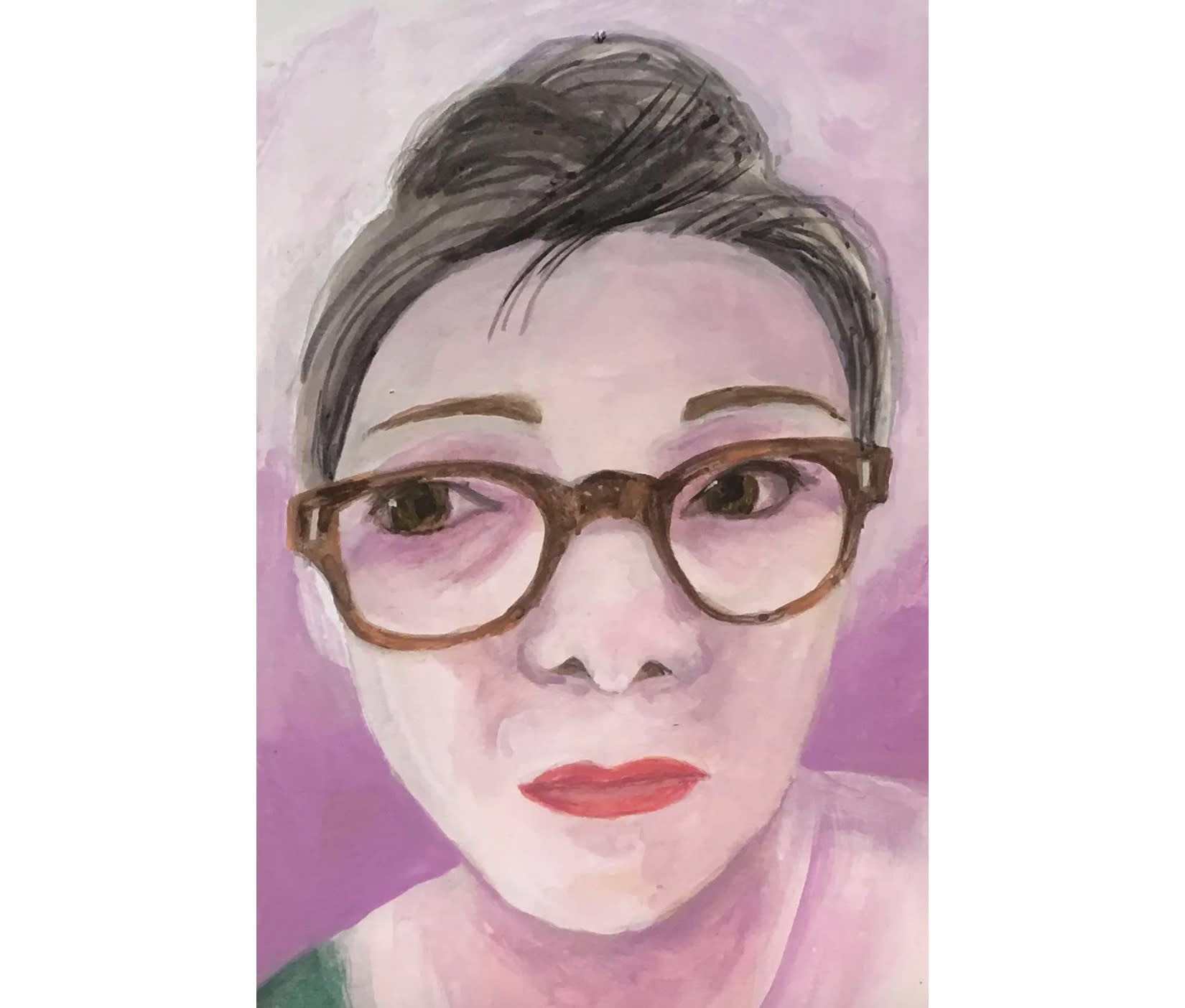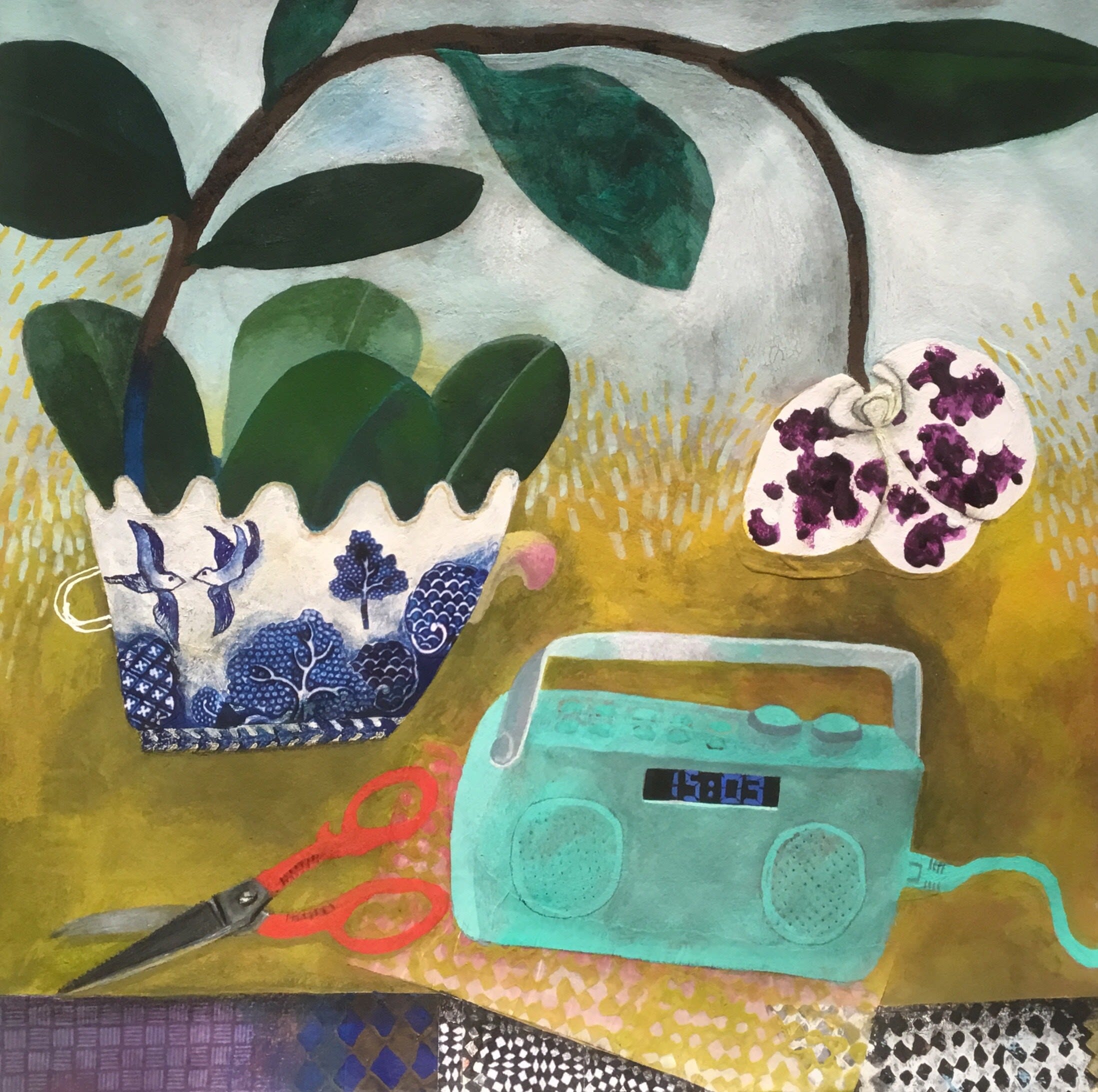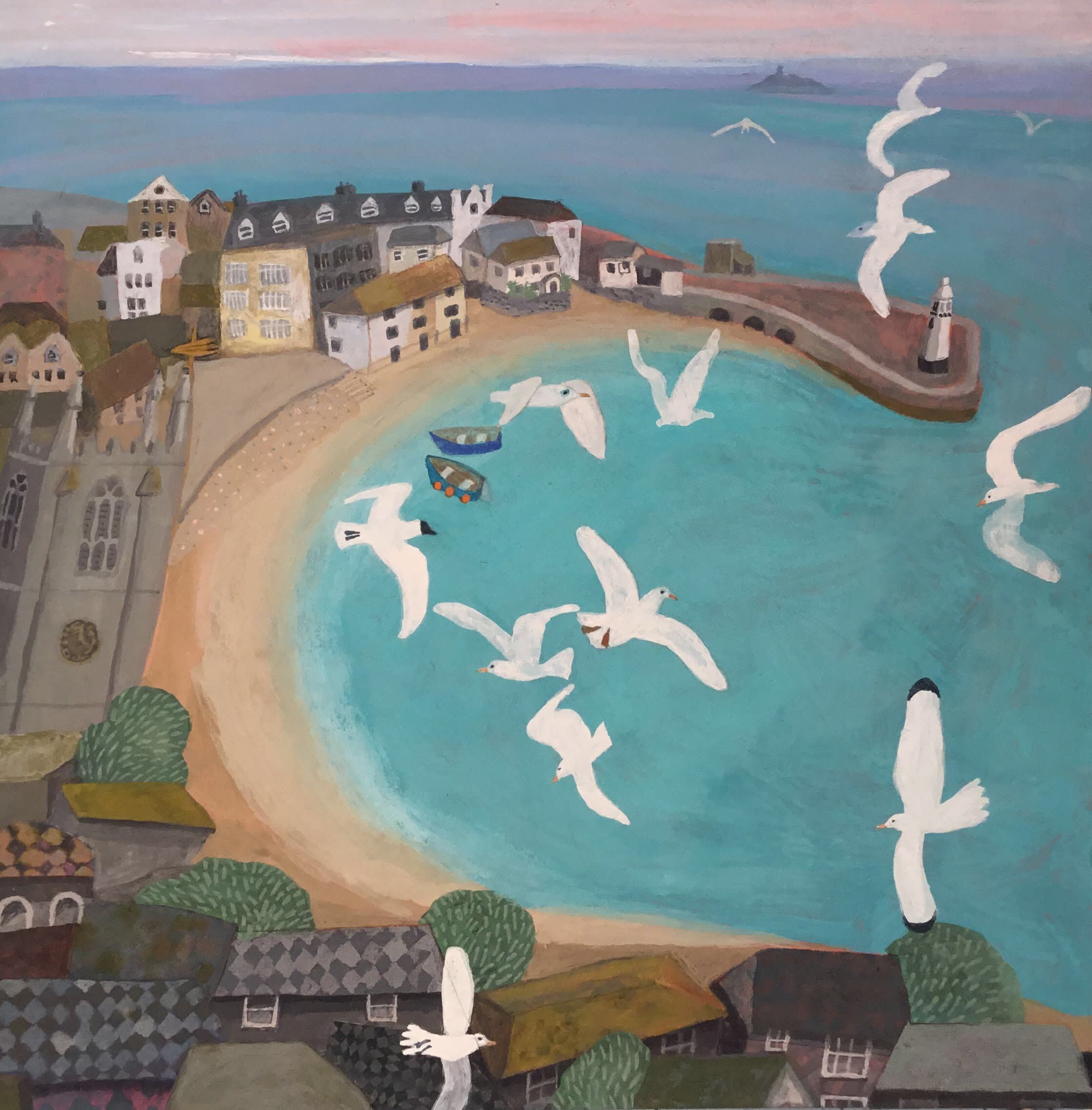The fifth artist in our International Women's Day Series is Gertie Young. Though having had a passion for painting her whole life, it was not until after retiring from her job as a business analyst in 2016 that Gertie was able to focus her attention entirely on making art.
Interview: Matilda Barratt in conversation with Gertie Young RWS.
Let’s start by talking a bit about your process. How do you go about determining your subject matter? When you start a painting, do you typically visualise how it might end up?
I wish I had an easy and clear answer to this question but I don’t. I am totally unable to determine my subject matter and neither am I able to visualize my finished painting. I have come to realize that the logical part of my mind - which you would think could be ordered to paint something - is not, for me, the part that actually does the painting.
I have of course in the past tried to paint by determining on a subject and at best I make a start and then I get stuck as I fight internally about what should go where and criticize how it should be painted. I end up abandoning these directed efforts, move on and simply paint over them.

Your creative method is very interesting – could you divulge a little about some of the techniques that you use?
I often start at the bottom of my painting or in one area, building up a kind of foothold using collage or pattern. I find anything like repetitive and regular mark making hypnotic and soothing. It gives my hands something to do while some other part of me sinks away into the surface in front of me. Bigger areas emerge, things arise, shapes gather together. I sometimes use pieces of collage like stepping stones drawing me into the main body of the painting. They move me on and I might leave them or paint over them. Sometimes I prepare my own card by glueing and pressing together thick sheets of paper until I achieve a weight and depth that will tempt me to paint.
I understand that it was not until after your retirement in 2016 that you were able to really focus your attention on painting. Had you always had an interest in art? Was the move to working as a full-time artist at all daunting?
For me this was like a magical transition. Almost as soon as I retired from a busy full-time job as a business analyst I began to enter art competitions because I had the time and, to my surprise my work was selected. I never expected to be an ‘artist’. I thought I would just continue to paint as I had done all these years, regularly filling thick sketch pads, experimenting with different techniques, not worrying about what the finished product will look like, not pleasing anyone except myself.

You have said that “the activity of painting [is] an adventure in itself”. Could you expand upon this?
The only way for me to paint is by knowing nothing and expecting nothing. I plunge into a journey armed with just myself, my paints and my piece of card. Sometimes my hands know what to do, what goes where, sometimes my eyes add a shape or a colour. Everything is filtered through memories of things I may have previously seen or felt that now arise newly formed and different. I am present enjoying the sheer pleasure of painting but I am also aware of the sunlight through the skylight, the birds singing outside, the passing traffic, the bin men. I trust that I will be taken somewhere and that I will complete the journey, if not now then at some later time, no pressure. I leave the logical part outside to worry about stuff.
What does a typical day look like for you? (If there is such a thing!)
I’m an early riser and usually start by taking a coffee into my workshop. I like to catch a painting I might have ‘on the go’ unawares. I might spend time just looking at things. At some point I usually go for a walk. I paint every day and usually in the morning, but I don’t really have a strict routine that I stick to. Very often I have something bubbling along in the back of my mind during the day but I don’t know what it is going to be - just a feeling - so I need quiet times when I’m doing something else (gardening for instance) to let whatever it is hatch.

What would your advice be to a young aspiring artist?
Don’t forget to play, have fun and encourage happy accidents to help you to stumble across your own distinct and individual style.
More like this on the Blog...
Read: International Women's Day Series: Jill Leman
Read: International Women's Day Series: Nana Shiomi
Read: International Women's Day Series: Julia Midgley
Read: International Women's Day Series: Rachel Gracey
Read: International Women's Day Series Sally McLaren
